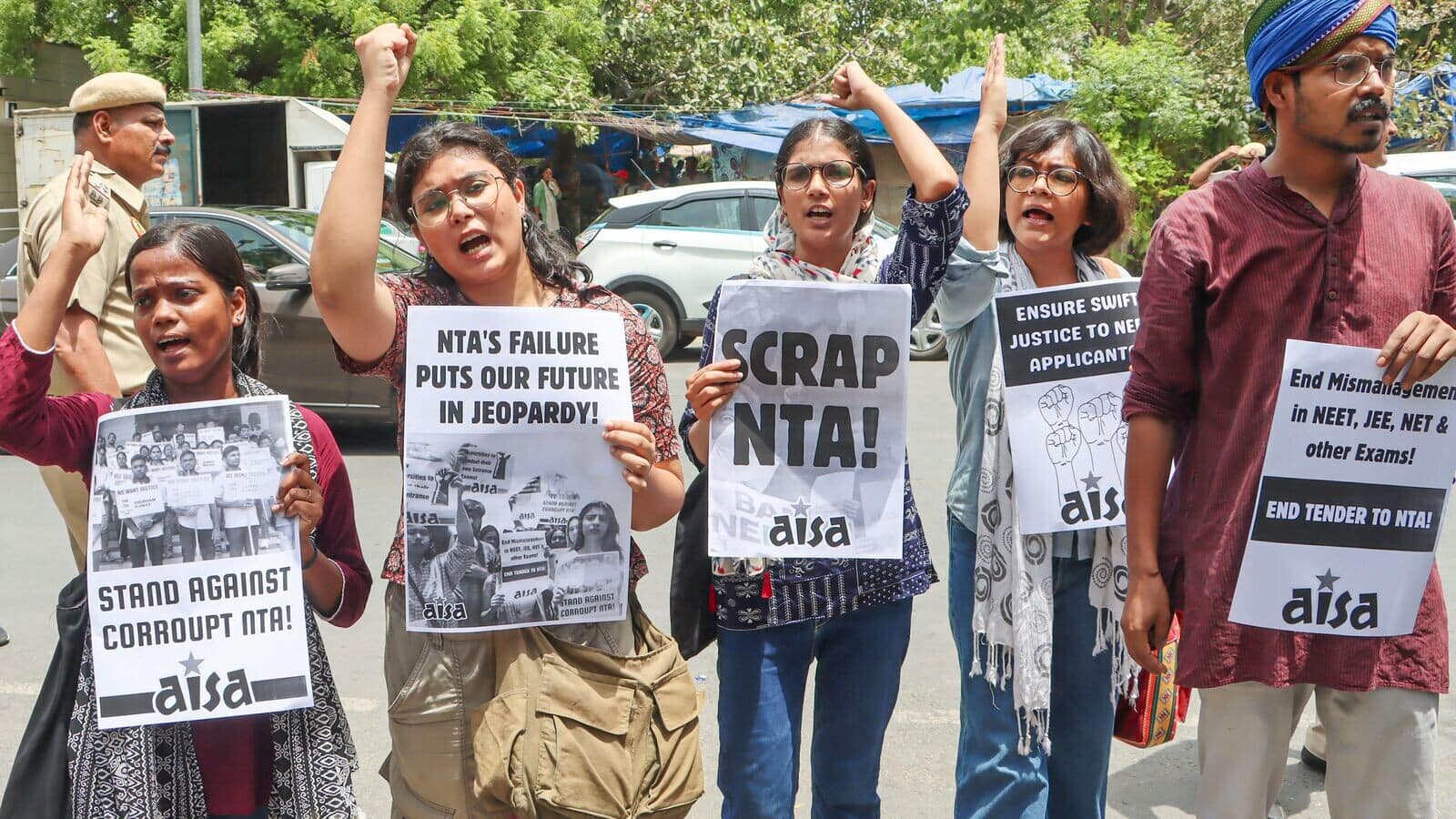
What is new 'anti-paper leak' law, its penalties
What's the story
The Public Examinations (Prevention of Unfair Means) Act, 2024, has come to the limelight amid allegations of irregularities in examinations conducted by the National Testing Agency (NTA).
On Wednesday, the education ministry canceled the UGC-NET 2024 examination over concerns that the test's integrity may have been compromised.
This decision comes in the wake of widespread outrage over the National Eligibility-cum-Entrance Test (NEET) question paper being leaked before the exam.
Here, we look at the law that punishes such fraudulent behavior.
Law provisions
'Anti-Paper leak' law targets unfair examination practices
The Public Examinations (Prevention of Unfair Means) Act is designed to prevent unfair practices in public examinations conducted by various authorities.
They include the Union Public Service Commission, Staff Selection Commission, Railway Recruitment Board, NTA, Institute of Banking Personnel Selection, and Union government departments.
This law covers offenses such as unauthorized access or leakage of question papers or answer keys and assisting a candidate during a public examination.
Legal consequences
Punishments under the new law
Those found guilty of these offenses can face three to five years in jail and a fine of up to ₹10 lakh.
Service providers found guilty of shifting an exam center without permission or disclosing confidential information prematurely could face a fine of up to ₹1 crore.
The law also includes provisions for higher punishments for organized crimes committed during public examinations.
Those convicted of organized crime face imprisonment ranging from 5-10 years and a minimum fine of ₹1crore.
Organised crimes
Higher penalties for organised crimes in exams
If an institution is held guilty, its property will be attached and a proportionate cost of the examination will also be recovered from it.
The law also stipulates that any complaints filed under the Act will be investigated by an officer holding the level of deputy superintendent of police or assistant commissioner of police.
Conducting phony examinations, issuing fraudulent admit cards or offer letters to cheat or for monetary gain are also offenses under this law.
Non bailable
All offenses under this law are non-bailable
All offenses under this law are cognizable, non-bailable, and non-compoundable.
The Act authorizes the central government to refer any case under the Act to a Central Investigating Agency as needed to guarantee that matters are handled expeditiously and cautiously.
Notably, the Central Bureau of Investigation (CBI) has been tasked with investigating the UGC-NET 2024 exam cancellation matter in accordance with this law.